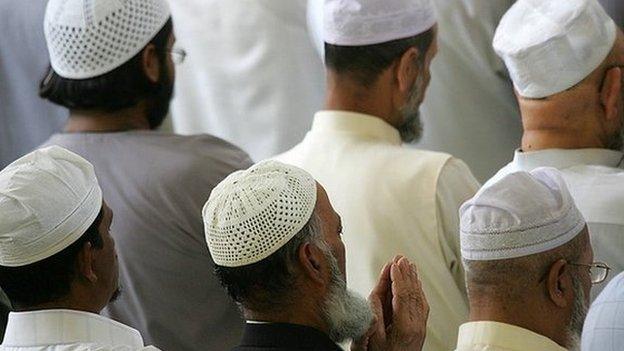How much of a problem is speaking English for some Muslim women?
- Published
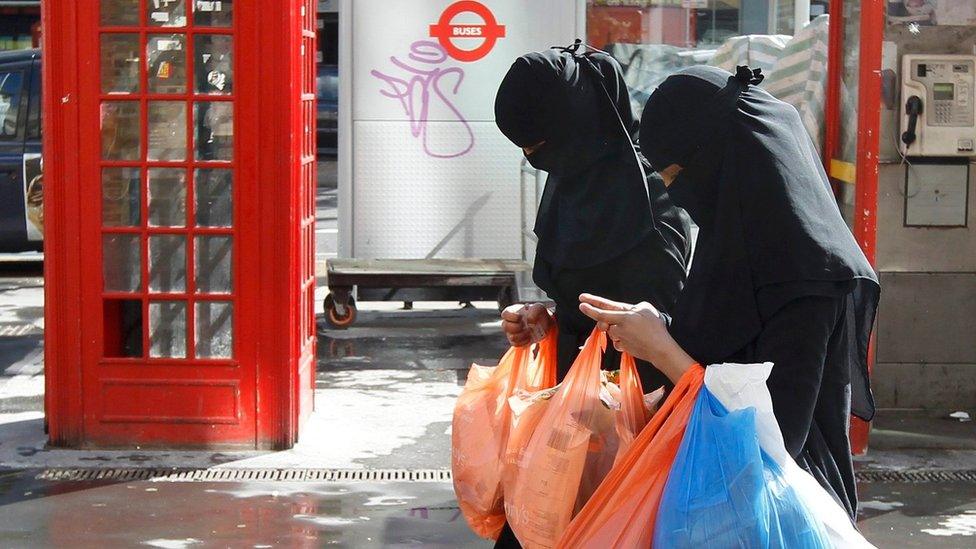
PM David Cameron has announced £20m of funding for language classes for the 22% of Muslim women in England said to speak little or no English. The funding is part of a drive to foster integration among this group, who he says are segregated in certain UK communities and can therefore be open to radicalisation.
But some Muslims disagree with his comments, pointing to other issues that Muslim women face in Britain today.
"We do get calls from women who say their husbands or in-laws don't want them learning English, because that will empower them and it will disrupt the status quo in their homes and communities."
Shaista Gohir is chair of the Birmingham-based Muslim Women's Network UK, which works to improve equality for Muslim women and girls.
She says the government's pledge on English lessons is a good thing, but should not be linked to radicalisation and should be for women of all backgrounds, not just Muslims.
"Learning English means women can engage with their children and schools, access local services, know their rights and engage with their neighbours," she says.
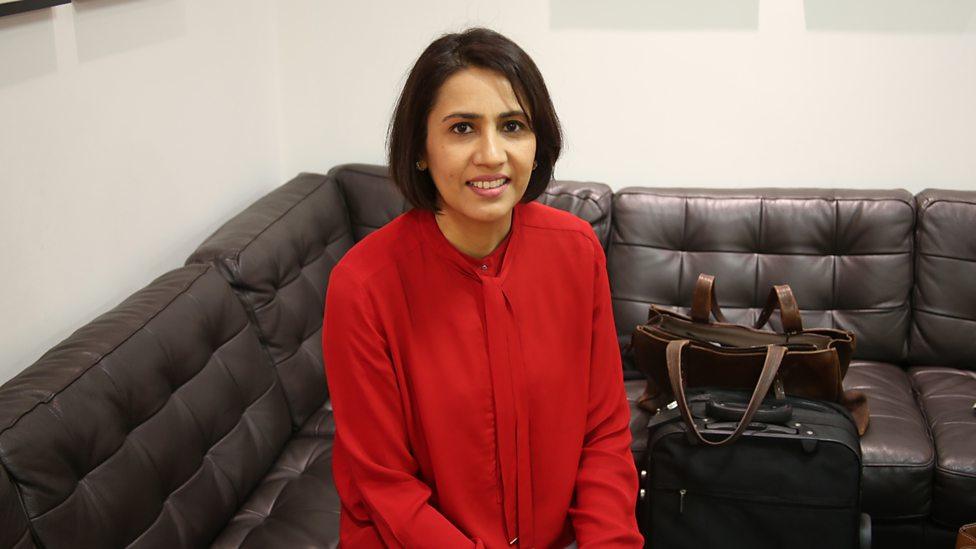
Shaista Gohir says patriarchal attitudes towards Muslim women are a bigger issue than their language skills
But Mrs Gohir says the really pressing issues to be tackled are patriarchy and misogyny among Muslim men in authority.
"It's not just among a few spouses stopping their wives learning English, it's among those running institutions like mosques and local councillors. Women cannot be involved in decision making at most mosques, tackling issues like drugs, rape and domestic abuse.
"Party politics is mostly controlled by male Muslim councillors, and their frequent patriarchal attitudes are exacerbated in our communities.
"These out-of-touch men are making decisions about women's lives, and these are the sorts of barriers that women face. That's the real problem for women, regardless of how good their English is."
The Muslim Women's Council has issued a statement, external in which it said the prime minister was conflating the issues of extremism and a lack of English, "further isolating the very same group of people that he is trying to reach and assist".
It added: "The funding announced is in fact a reduction in real terms as it was only six months ago that funding of £45m was cut for 47 colleges for ESOL courses by the Department for Business."
Access difficulties
Sajda Mughal, director of the London-based Jan Trust which works to empower vulnerable women, says there is indeed an issue among Muslim women living in the UK who are unable to speak English.
"Currently 200 women come to our centre each week, 80% of which are Muslim. Of these, 70% cannot speak English or are very poor at it. Some have English as a fourth or fifth language. Some are even illiterate in their own language.
"It's heartening to hear the prime minister is providing this language funding but it should trickle down to grass-roots organisations and not just be given to bigger ones like colleges.
"We have large numbers of women who say they have been turned away from colleges because they need very basic lessons and are told the colleges don't provide that level."
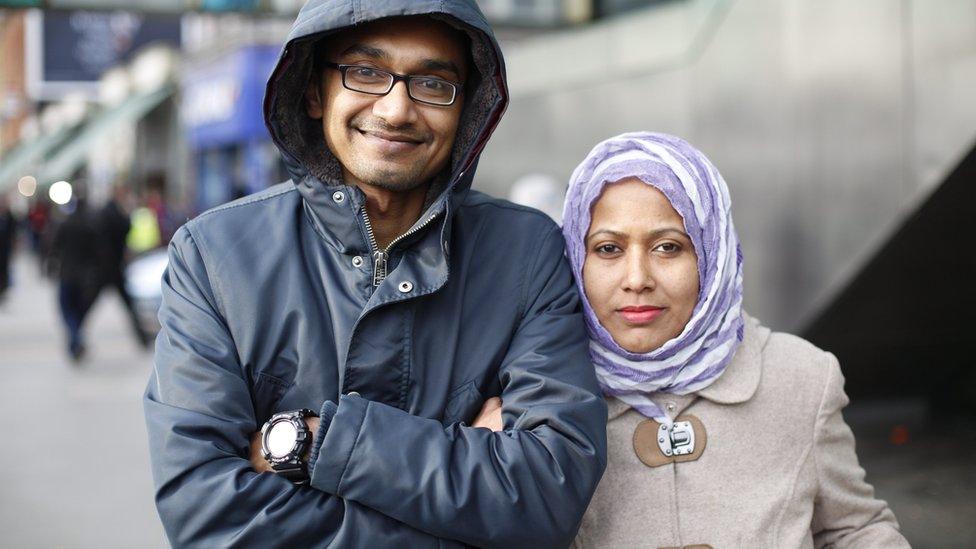
Rehena Parvin and Tangir Ahamed believe people living in the UK should learn English
Aklima Bibi, from Luton, says Mr Cameron needs to tackle the issues of language learning and social integration at grassroots level.
"I'm a human rights lawyer now but I was a victim of both forced marriage and domestic violence.
"The money for classes will be wasted. It won't help at all. Those who are free to be educated will be. And those who aren't fear their men folk. These women are trapped. The institutions will get their money and, when it doesn't work, they'll close and be back to square one.
"We Muslim women can prove to the PM we can do much more if his own agencies do not force us to be caged by their so-called men folk, that the government agencies help to protect and allow to oppress us. He needs to tackle the problem at grassroots level - with police and government agencies."
'Not just Muslims'
Rehena Parvin, who lives in London, is originally from Bangladesh, having been in the UK for some 13 years. She told the BBC she agrees "100%" with Mr Cameron's call for Muslim women to learn English.
"It doesn't matter if you're Muslim or non-Muslim, everybody needs to learn English," she said.
"It's not really difficult for people who've just moved here to learn. They need to attend school or courses."
Her husband, Tangir Ahamed, said they both knew English before they came to the UK but still faced challenges.
"We struggled at first, with accent, and we had a lack of practice back home.
"But you have to have the intention of learning something. I don't think it's very difficult. But those who are really struggling to learn, they will struggle everywhere to be honest."
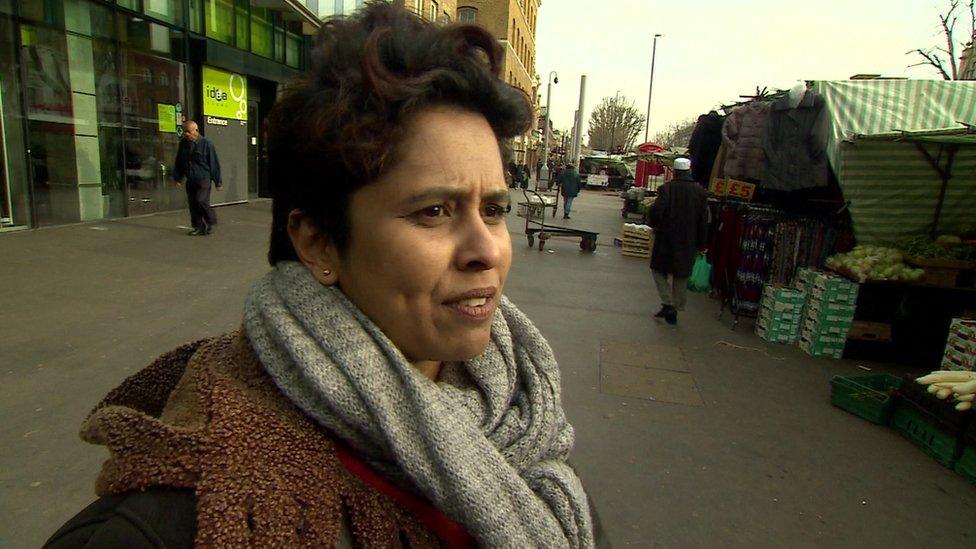
Nigar Hakim says some people among other cultures in the UK do not speak English - not just Muslims
Nigar Hakim, also of London, said the issue of lacking English language skills was not just in the Muslim community.
"It's good that he's putting money into the language schemes but he should be putting money into all parts of society, not just one part, and helping everybody to speak English.
"It's not just Muslim women who can't speak English - there are also other cultures who can't."
Elsewhere, Humera Khan, of the An-Nisa Society based in north London, says there has always been a "significant percentage" of migrants who do not speak English living in the UK - whether or not they are Muslim.
"I know from 30 years ago, the percentage was about 16%. So 22% is not that much of an increase.
She also describes the issue of gender segregation among Muslims as "the real sweetheart of the media", regularly surfacing as a talking point.
"There are other communities equally suffering from chauvinism, misogyny and other kinds of domestic violence.
"So I don't think [Muslims] are unique in that respect."
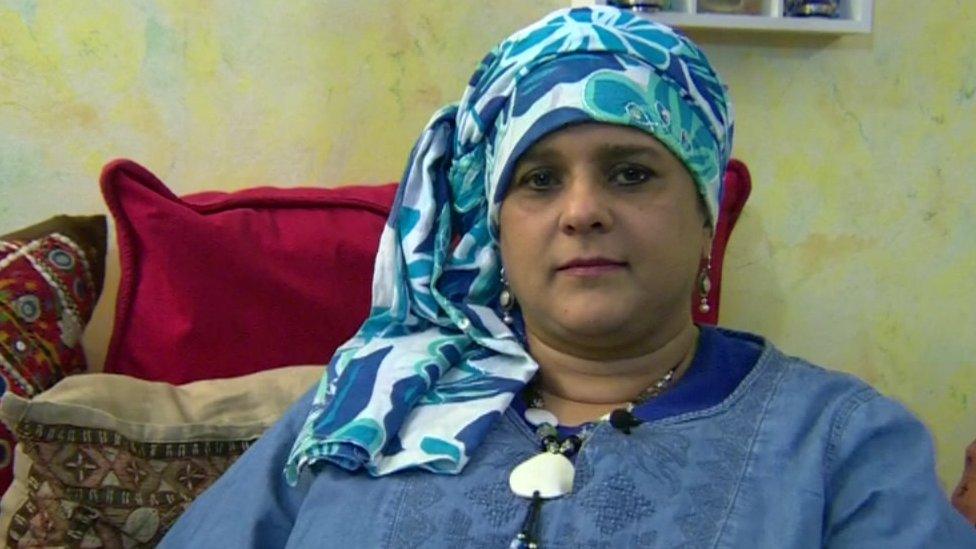
Humera Khan says it is not just Muslim communities that have issues of female segregation
In a statement, the Muslim Council of Britain said it welcomed the prime minister's call to have English taught but said it "falls at the first hurdle if he is to link it to security and single out Muslim women to illustrate his point".
It added: "English language is a barrier but not the only or most important one.
"Other factors such as labour market inequalities, perceived discrimination, deprivation and generational differences amongst Muslim women need to be reflected on."
- Published18 January 2016
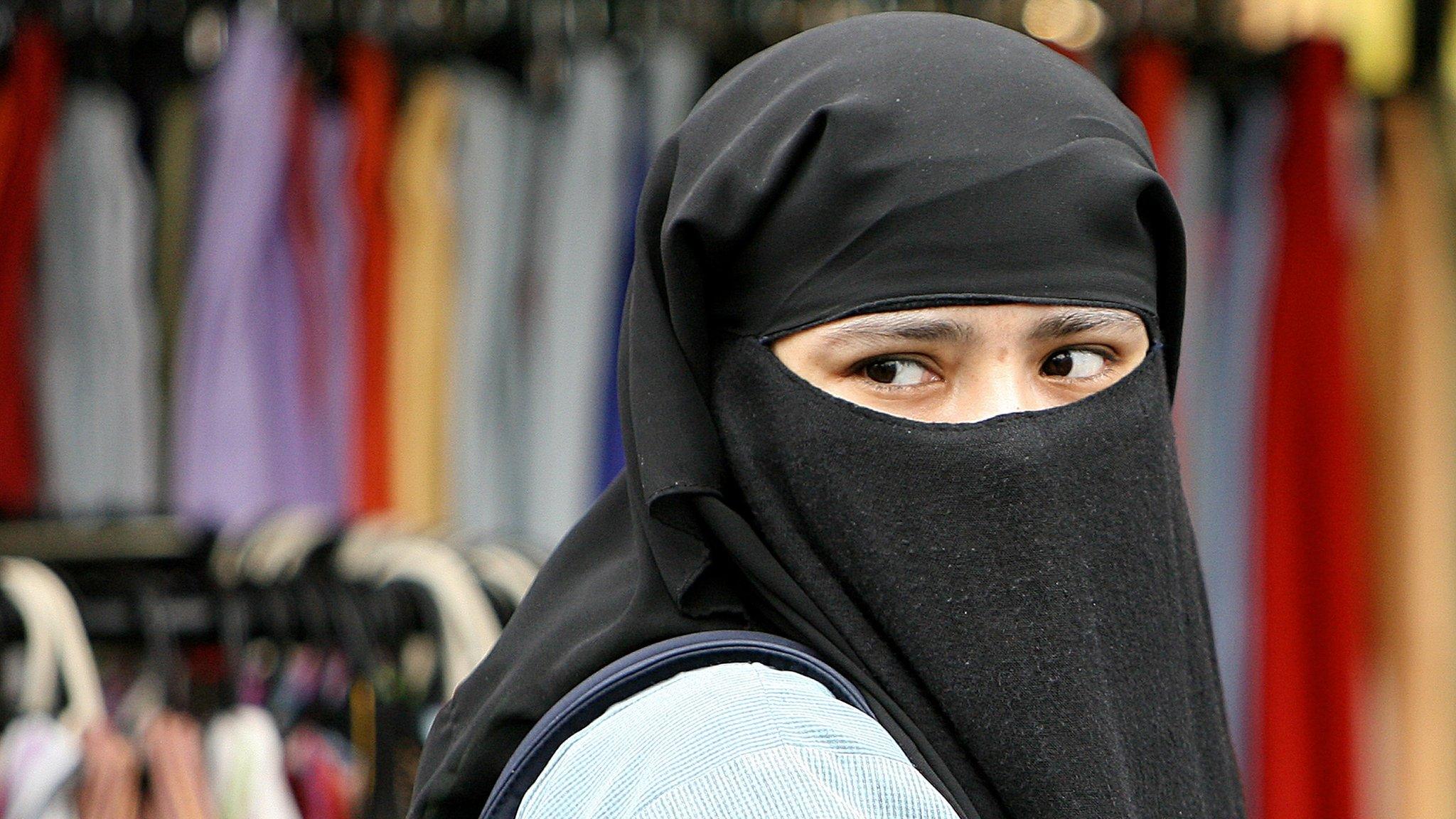
- Published18 January 2016
